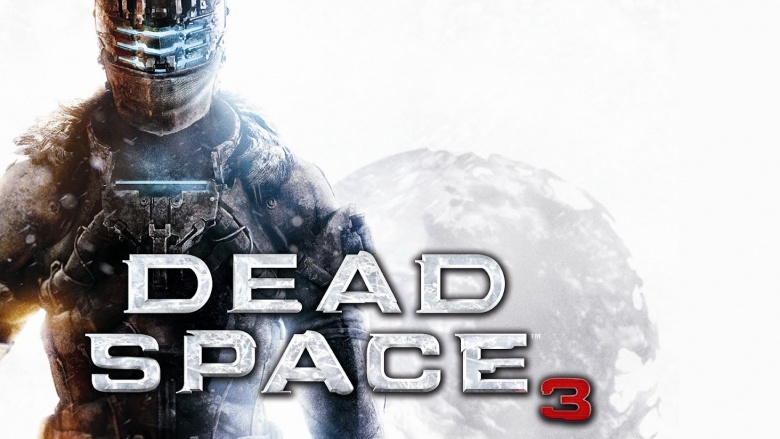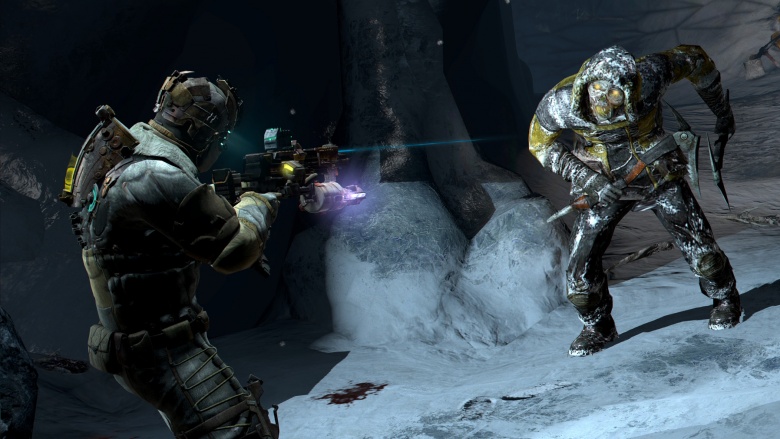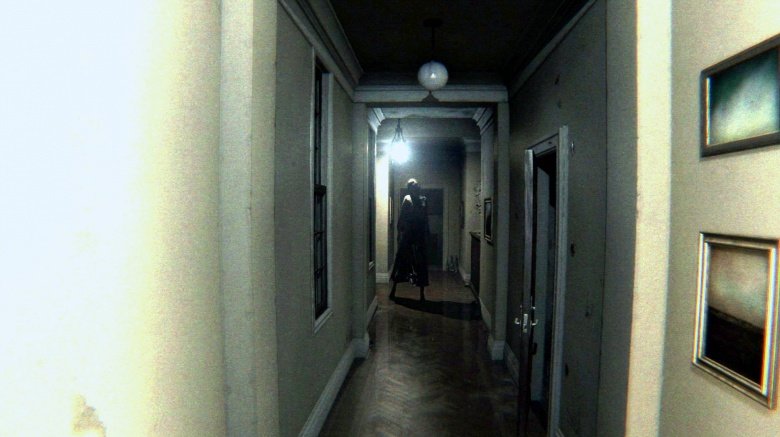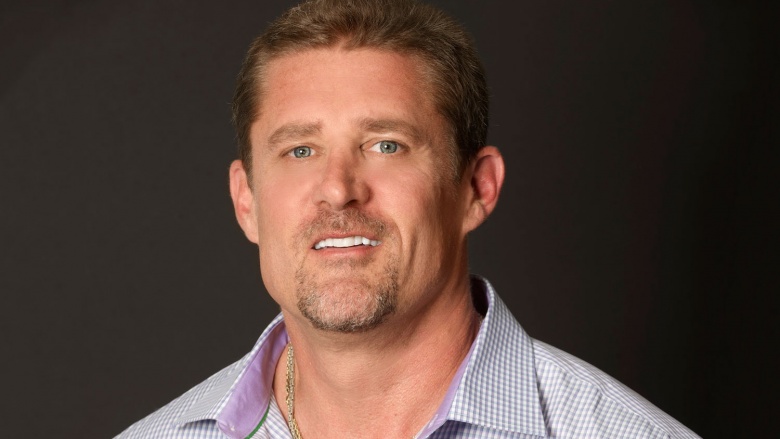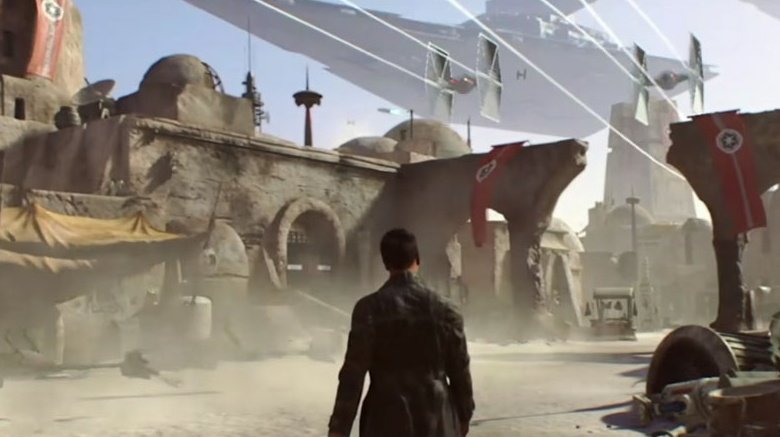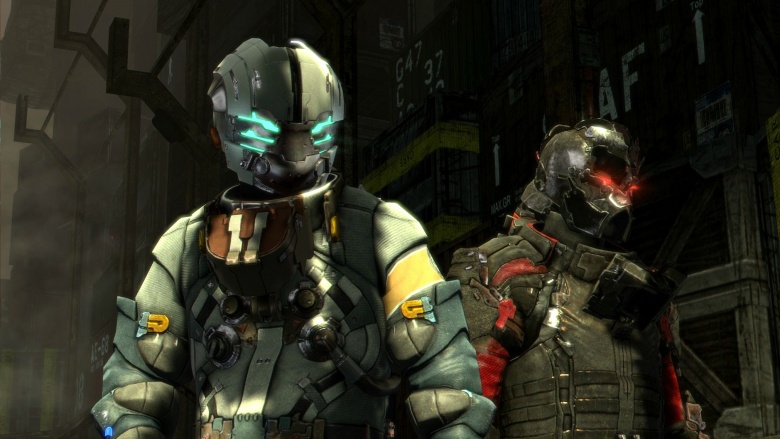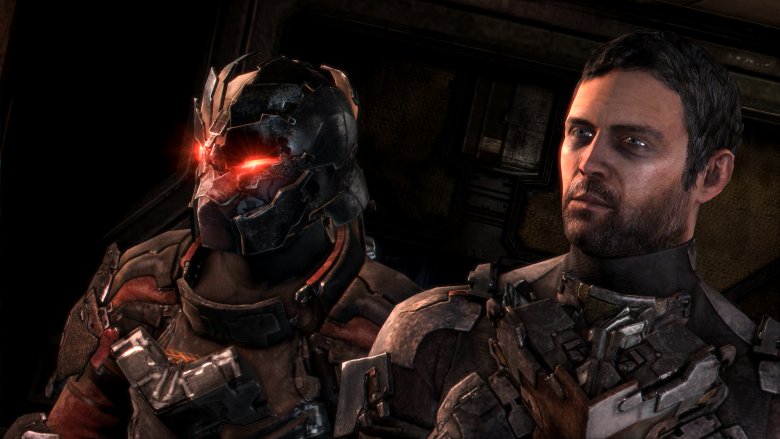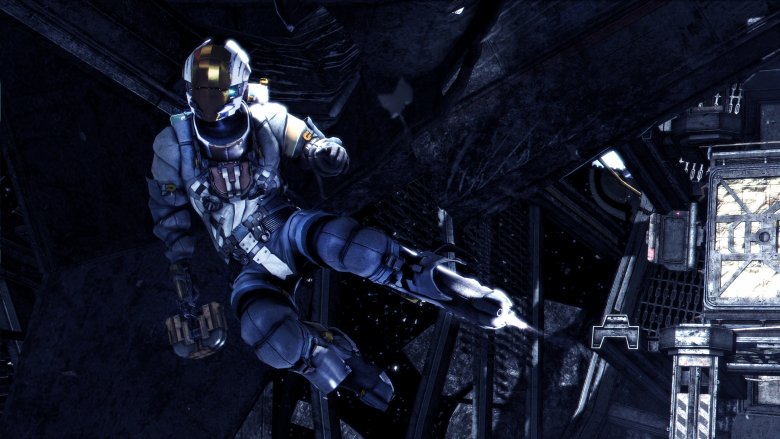The Reason We Never Got To Play Dead Space 4
In 2008, Dead Space introduced us to Isaac Clarke, a lowly engineer forced to fight his way off a zombie-infested spaceship. It was an instant hit. Dead Space racked up over two million sales, nabbed a handful of awards, and seemed set as the next big thing in survival horror.
Dead Space 2 arrived in 2011. Dead Space 3 hit in 2013. And then...nothing. While publisher Electronic Arts claims that Dead Space is still "important" to the studio, a sequel still hasn't happened. Here's why.
Dead Space 3 didn't sell well enough
In an interview with CVG (since taken offline), former Electronic Arts president Frank Gibeau said, "Ultimately you need to get to audience sizes of around five million to really continue to invest in an IP like Dead Space." Otherwise, it's just not worth EA's time, money, or effort.
Sadly, Dead Space 3 didn't sell anywhere close to five million copies. In its first week of release, Dead Space 2 shipped nearly two million copies—almost twice as much as the original game. By contrast, Dead Space 3 only moved 605,000 units. That was enough to become the best-selling title of February 2013, but remained well below Electronic Arts' initial estimates, which indicated that Dead Space 3 was on track to become the best-selling title in the franchise. Dead Space 3's failure contributed to EA's year-on-year revenue loss in 2013, likely making it difficult to justify a sequel.
Dead Space 3 didn't get great reviews, either
According to the review aggregator Metacritic, the first Dead Space received average review scores between 86% (for the PC version) and 89% (for the Xbox 360 version). Dead Space 2 scored even higher, with ratings between 87% and 90%.
Dead Space 3, however, only scored a cumulative 78% from critics. That's certainly not terrible—according to Metacritic, the average video game tends to fall somewhere between 70% and 75%—but it does mark a big step down from the previous games. Critics praised Dead Space 3's visuals and sound but didn't like the game's move towards action and way from survival horror, and they didn't find the frozen planet Tau Volantis as compelling as the series' freighters and space stations. If Dead Space 3 proved the franchise suffered from a case of diminishing returns in terms of both sales and critical acclaim, maybe it's kinder to put it out to pasture entirely.
Video game horror is changing
You won't find Dead Space's unique dismemberment system or its silent zero-gravity set pieces in other survival horror games, but for the most part, Dead Space plays it by the book. A creepy, atmospheric world inspired by big-budget Hollywood blockbusters? Lots of villains and too few bullets? Buckets and buckets of gore, and plenty of haunted house-style jump scares? Check, check, and check.
But horror gaming has changed a lot since 2008, when the first Dead Space hit consoles. In 2014, Hideo Kojima and Guillermo del Toro's "playable trailer," P.T., spooked players with haunting, surreal imagery and shifting geography — not intentionally unbalanced combat and frenzied inventory management. Resident Evil 7 took the long-running franchise into a first-person perspective and dialed the action way, way back. The Resident Evil 2 Remake looks like it's doing the same. YouTube favorite SOMA is all about exploring and puzzle-solving. Five Nights at Freddy's, the master of the digital jump-scare, doesn't feature any fighting, and yet it's still frightening children around the world.
In other words, modern-day video game horror is less physical and more psychological, and it's not clear where an old-fashioned survival franchise like Dead Space fits in. Maybe it simply doesn't.
Dead Space's creators have moved on to other things
Glen Schofield, who created Dead Space, left Visceral and Electronic Arts in 2009 to form his own company, Sledgehammer Games. Wright Bagwell, lead gameplay designer on Dead Space and creative director on Dead Space 2, joined Zynga in 2011, where he led the design team on FarmVille 2. Steve Papoutsis, Visceral's vice president and general manager and the lead executive on all of the Dead Space games, departed Electronic Arts in 2015.
In other words, many of the people who created Dead Space have moved on. Obviously, a new crew could pick up where the old one left off—in game development, that happens all the time. Given that the major complaint about Dead Space 3 was that the game pushed the franchise away from its roots, however, it's hard to imagine that a team without the unique passion and insights of the original could capture Dead Space's unique blend of action, despair, and horror.
The studio that created Dead Space no longer exists
Before Dead Space, Visceral Games made licensed video games, cranking out titles based on The Godfather, The Lord of the Rings, The Simpsons, and James Bond. Dead Space was the studio's first major, original intellectual property. Electronic Arts owns the rights, but Dead Space was really Visceral's baby. It worked out well for them, too, at least at first: inspired by Dead Space's popularity, Electronic Arts handed Visceral the reins to Battlefield: Hardline, and then Amy Hennig's mysterious Star Wars project.
Unfortunately, Visceral's success didn't last. In October 2017, Electronic Arts put Star Wars on hiatus and shut Visceral down. One former employee called it a "mercy killing." Allegedly, Hennig and Visceral wanted to make a big, story-driven single-player game, while EA wanted an open-world adventure that was easier to monetize. EA's Frostbite engine gave people trouble. So did Disney, which insisted on approving the game's smallest details (they've got a brand to protect, after all), adding months to the design process. Visceral was understaffed, and collaborations with EA's other studios didn't go smoothly. Ultimately, it just seemed easier to pull the plug.
That's a bummer for Star Wars fans, but it's even worse for anyone who wants more Dead Space. Nobody's going to be as passionate about the franchise as the studio that created it. Unfortunately, it's no longer around.
Dead Space 3 lost what made the franchise special
The first two Dead Space games are conscious throwbacks to movies like Alien and Event Horizon. Isaac, the series' protagonist, isn't a soldier or a police officer—he's just a regular guy who who must fight his way through infested, confined spaces (an industrial ship in the first game, and an overrun space station in the second). For a major part of the game, he uses tools, not weapons, to defend himself. He is alone.
But Dead Space 3 is different. In a conscious attempt to reach a wider audience, Electronic Arts added co-op multiplayer to the main campaign. Suddenly, Isaac has a buddy—a stereotypically grizzled soldier with an equally generic name (John Carver). The tight, claustrophobic levels are replaced by wide-open snow-filled spaces that reminded many people of the popular shooter Lost Planet. In the first Dead Space games, Isaac's movement was a little clunky, which added to the tension. In Dead Space 3, he can roll out of the way of danger, and duck effortlessly behind protective cover.
A reboot might make more sense than a sequel
Isaac's arc was largely resolved after Dead Space 2, and it's been over half a decade since the last Dead Space adventure. Maybe it's better to start things over — at least with a soft reboot — than keep the series going. After all, the final piece of Dead Space 3 story content, Dead Space 3: Awakened, ends with (spoiler alert) a full-on invasion of Earth by hostile forces. That's a pretty great jumping off point for a brand new Dead Space trilogy starring a new character and all kinds of new adventures.
Dead Space's creators agree. While speaking to Eurogamer, Dead Space creative director Ben Wanat admitted that he'd always imagined that Ellie Langford, a Dead Space supporting cast member, would take the lead role from Isaac for Dead Space 4. The game could've also starred John Carver, Dead Space 3's player two, or an entirely new character. "With the apocalypse, there was the opportunity for a clean break," Wanat says.
Wanat thinks that some EA designer could come along and revive the franchise. "I think the Dead Space universe is ... a big enough space for sequels, new stories and new ideas," Wanat says. As Wanat puts it, as long as you stick to the franchise's core — "dread, horror, and great dismemberment combat," in his words — you've got Dead Space.
Dead Space 4 would've been completely different, anyway
Maybe it's a good thing that Dead Space 4 never materialized. As mentioned before, Dead Space 3 started pushing the series in a different direction, and as creative director Ben Wanat told Eurogamer, Visceral's planned Dead Space 4 would've taken things even further.
Instead of a linear crawl through a single spacecraft, for example, Dead Space 4 would've been an open-world adventure in which Isaac — or whoever ended up starring — would travel between ships, leaving a trail of necromorph corpses in his wake. As players explored the derelict ships, they'd strip some for parts, would use those to fix up others, and would ultimately unravel Dead Space 4's plot by unlocking story data and opening up new exploration routes. The necromorphs' origin story was going to play a big role, and there were going to be all kinds of new undead foes to dismember, too. Zero-gravity zombie fights? Oh yes indeed.
Dead Space 4 would also have excised "some of the ridiculously expensive one-off action moments," delivering a leaner and meaner survival horror experience. Dead Space 3 didn't make enough money to justify another high-budget sequel, and even while working on the sequel, the Visceral team suspected that it'd be the last one. Maybe that's for the best. An open-world space salvage game sounds amazing, but is it really what people expect from Dead Space? Maybe. Maybe not.

